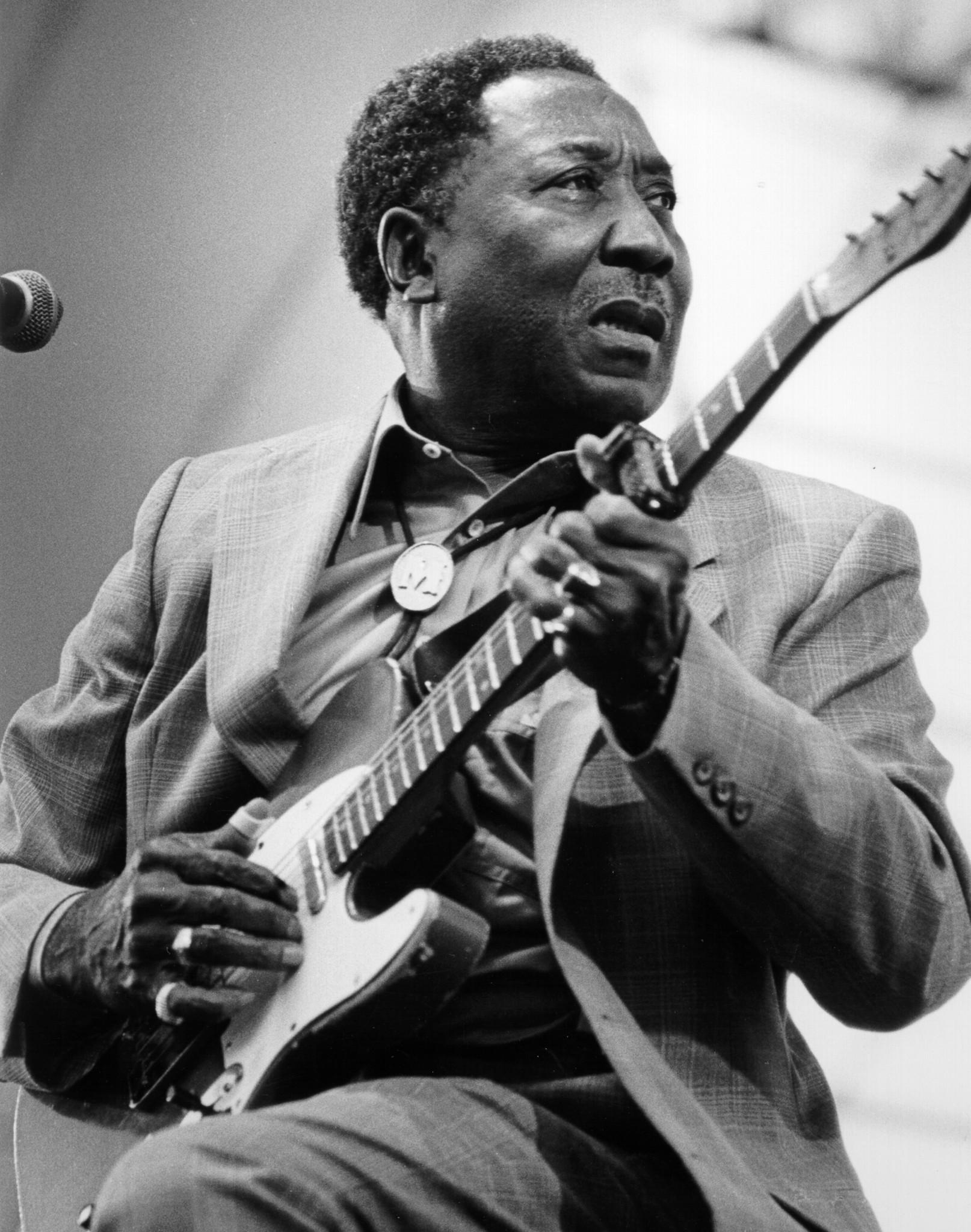Muddy Waters was one of the most influential artists to emerge in postwar American blues. Waters was a remarkable singer, a talented songwriter, a skilled guitarist, and the leader of one the most powerful bands in the genre. He also absorbed the rural blues influences from the Deep South and brought them uptown. His music had a fierce, electric energy. This style would be the foundation of Chicago Blues. Waters’ impact on blues and rock is immense. Surprisingly, his last five years were the most important. Waters was born McKinley Morganfield. Historians disagree about details of his childhood. While he claimed that he was born in Rolling Fork in Mississippi on April 4, 1915 (or 1914), census records and personal papers show that he was actually born in Mississippi’s Issaquena County. Others have listed Jug’s Corner as his birthplace. It is known that Morganfield lost his mother at the age of three. His grandmother Della Grant raised him on the Stovall Plantation, Clarksdale, Mississippi. Grant said that Morganfield was given the nickname “Muddy” by Grant because he loved to play in the mud when he was a boy. The name stuck and was later tacked on “Water” and “Waters”. In the ’20s and 30s, the rural South was a hub for blues music. Young Muddy discovered that a neighbor owned a phonograph with records by Blind Lemon Jefferson, Lonnie John, and Tampa Red. Muddy was immersed in blues music and began to play the harmonica. He performed at local parties and fish fries as a teenager, sometimes with Scott Bohanner (who lived and worked in Stovall). Muddy was first exposed to contemporary Delta blues artists like Robert Johnson, Son House and Charley Patton in his teens. Their music inspired Waters, who bought a guitar at 17 and learned to play the bottleneck style. He was soon performing solo and with the Son Simms Four, a local band. In addition, he opened a juke shop on the Stovall grounds where sharecroppers could enjoy music, drink, snack, or gamble. Waters was a regular performer in Mississippi. He performed with Robert Nighthawk and Big Joe Williams. In the summer of 1941, Alan Lomax, a musical archivist, arrived in Mississippi with John Work III, a portable recording device. They were eager to record local blues talent for The Library of Congress. Waters was a strong performer, and Work recorded many sides of him in his juke box. Two of the songs were made into a 78 and Waters was given $20 and two copies of the single. This encouraged Waters to consider a career as a professional musician. Lomax recorded more material with Waters in July 1943. These early sessions were included on Down On Stovall’s Plantation, which was released in 1966. A 1994 reissue, The Complete Plantation Recordings won a Grammy Award. Waters made the decision to move to Chicago, Illinois to make a living from his music in 1943. He moved to St. Louis in 1940 for a brief time, but didn’t like it. Waters drove a truck, worked in a paper factory by day, but at night struggled for fame, playing at house parties and other bars. Big Bill Broonzy reached to Waters to help him land more gigs. Muddy had just switched to an electric guitar to make his slide work better in loud clubs. Okeh Records had already caught Waters’ attention in 1946. They took him to the studio to record, but did not release the results. A session for 20th Century Records that year resulted only in one single being released as the B-side to a James “Sweet Lucy” Carter album. Waters did better with Aristocrat Records. Aristocrat Records is a Chicago-based label, founded by brothers Leonard Chess and Phil Chess. Waters was first recorded by the Chess Brothers in 1947. While Sunnyland Slim did a few sides, Waters’ second single for Aristocrat, “I Can’t Be Satisfied”, b/w “(I feel like) Going Home” became a major hit and made Waters a prominent figure on Chicago’s blues scene. The Chess Brothers initially recorded Waters with local musicians, including Earnest “Big”, Crawford, and Alex Atkins. But for Waters’ live work, he had hired a band that included Little Walter on harmonica and Jimmy Rogers on guitar. Elgin Evans replaced Waters as drummer. Waters and his band earned a reputation as being the best blues band in town with Waters’ passion and guitar playing matched by his band. The Chess Brothers, who had changed their name from Aristocrat Records to Chess Records by 1950, began using Waters’ stage band in the studio. Little Walter was a favourite among blues fans and an excellent foil for Waters in the early ’50s. Otis Spann, who joined Waters’ band on piano in 1953 after Jimmy Rogers left, would be the band’s anchor well into the 60s. Waters’ ’50s hits included “Rollin’ And Tumblin,” “I’m Ready,”” “I’m Your Hoochie Coochie Men,” “Mannish Boy,” and “Trouble No More.” He was a regular presence on the R.
